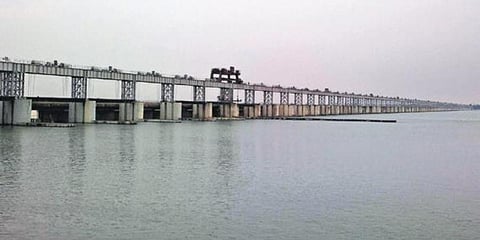Ecological survey of six major Indian rivers
DEHRADUN: Wildlife Institute of India, Dehradun will be conducting ecological survey of six major rivers of India — Mahanadi, Periyar, Godavari, Kaveri, Narmada and Barak. The survey will be conducted under National River Conservation Plan to assess ecological status of the rivers and ecosystem around these rivers.
Dhananjai Mohanz director of the WII said, “This will help in determining health of the rivers and further conservation efforts. The survey of all six rivers will take at least an year. Teams are being formed and survey will start soon.”
The six rivers are in Madhya Pradesh, Maharashtra, Karnataka, Kerela and northeastern states. The survey will be focussing on determining ‘Ecological Status’ of all the six rivers which includes flora and fauna, level of pollution and effect of human intervention on ecosystem.
In September, according to a report released by Central Pollution Control Board, water quality of five major rivers in the country, including the Ganga, deteriorated during the lockdown.
Meanwhile, an improvement is witnessed in water qualities of Brahmaputra, Cauvery, Godavari, Krishna, Tapi and Yamuna. According to the report, the quality of water in seven of the 19 rivers monitored by State Pollution Control Boards (SPCBs) improved during the lockdown period.
The CPCB said it had asked SPCBs to assess water quality of Ganga, Yamuna, Godavari, Krishna, Narmada, Beas, Brahmaputra, Baitarani, Brahmani, Cauvery, Chambal, Ghaggar, Mahanadi, Mahi, Pennar, Sabarmati, Sutlej, Suwarnarekha and Tapi.

